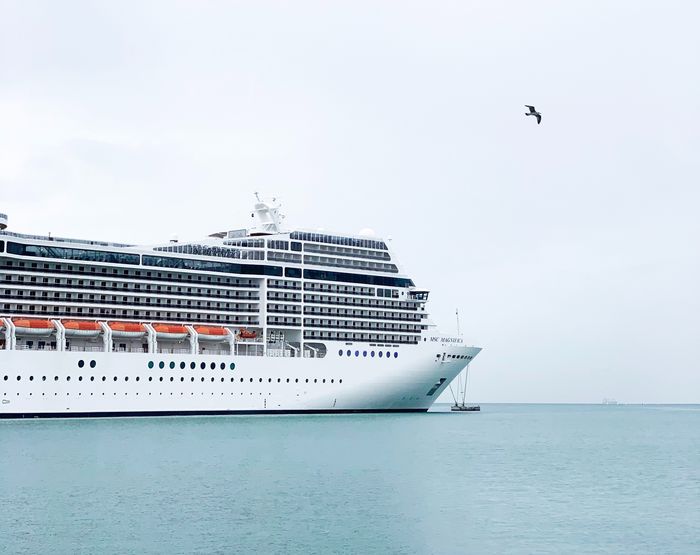Even at the end of July, more than 300,000 seafarers are still stuck on their ships worldwide. A return home seems to be a long way off - many ships cannot sail due to insufficient crew and port authorities refuse to let crews go ashore.
Among them are also many Filipino seafarers who man more than a quarter of the global fleet. As a result of the lockdown, major cruise lines have stopped operations, causing more than 100,000 Filipino cruise ship workers to lose their jobs. However, they are still not allowed to go home. Many of them had to wait for months on their ship , in foreign cities or even in local quarantine stations in the Philippines before being allowed to return to their families.
No state aid, no salary
Even though the Philippine government has promised its overseas workers including seafarers a one-time social assistance of $200, more than half of all cruise ship employees have been waiting in vain for this government support since March. The budget has already been exhausted, the government says, and a second tranche is still waiting. Those who have lost their jobs are particularly hard hit. Since they are theoretically entitled to this state corona assistance, they are being refused payment of their unemployment benefits. As a result, the seafarers and their families are now facing severe financial difficulties.
Besides the state, the shipping companies are also slow to meet their obligations. Here, too, are long delays in the payment of salaries and crisis aid, as well as deficits in medical care. The latter would be particularly important now to ensure the mental health and psychological care of the seafarers. Due to the long quarantine they have gone through a lot of mental stress, suffered trauma, were afraid of infection and losing their livelihood.
Philippine government provides insufficient protection
The Philippines has the highest COVID-19 outbreak in Southeast Asia and the Pacific. Nevertheless, there is still a lack of proper quarantine facilities, safe transportation from the airport to the home towns, access to mass testing, tracking of test results and medical care. Corona testing is unaffordable for many due to corruption and greed for profit.
One example is the Grand Princess crew members who were repatriated from the United States and quarantined at the Philippine Clark Air Base. During their almost one month quarantine they were neither tested nor received any money. Instead, they were taken to the capital Manila, where many of them were again quarantined for weeks. If they were tested, they were not even informed if they were actually infected with the COVID-19 virus. With the fear of uncertainty, they were finally sent home and ran the risk of infecting their families.
However, the rate of corona infection is particularly high among cruise ship crew members. Even when there was a confirmed case of infection on board, many of them were forced to work. Those who refused to, were threatened with dismissal and that they will not be rehired. The same happened to the crew of the Diamond Princess, which was stranded in Yokohama, Japan. The crew had to continue to serve the passengers, prepare the food, clean the cabins - without proper medical training and the use of appropriate hygiene standards. On the Grand Princess, this irresponsible handling of the virus even led to the death of the ship's electrician, unfortunately not an individual case on ships worldwide .
No back to normal: time to claim rights
As a consequence, the International Transport Workers' Federation (ITF) has called for all seafarers to down tools by 15 June 2020 to insist on their rights: Provided they have fulfilled their agreed contract, they have the right to return home. If this is not possible, they must be treated as passengers on board. However, many seafarers were afraid to take part in the strike. Since many of them only have temporary contracts, they are concerned that they will lose their chances for rehirement if they complain about their precarious working conditions, such as inadequate medical care or late wage payments.
Due to the current crisis many have realized that they will not be heard unless they complain. This is why more and more seafarers, including from cruise ships, cargo ships and fishing vessels, are now claiming their rights. To show the world the conditions under which they have to work, some of them have organized themselves on various social media platforms. At the same time, they are calling for meaningful reforms. One of these demands is the passage of a new law after the pandemic considering seafarers as regular employees with security of tenure. For them, the pandemic is a turning point to improve their lot. A “back to normal” is out of the question.
Edwin Dela Cruz is the president of the International Seafarers Action Center (ISAC) Philippines and the seafarers representative in the Global Council of Migrante International. He is a labour and maritime lawyer who has been handling seafarers and migrants cases for the past twenty years. He is also the president of the Philippine Cuba Friendship Association (AMISTAD).



